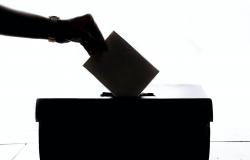Authoritarian Populism in the Americas: A Symptom of Democratic Crisis

Luis Aguasvivas and Vaclav Masek argue that El Salvador and Brazil’s democracies are falling foul of autocratic agendas, and draw lessons for others keen to avoid similar fates.
Populism is a discursive political style inherent to democracy whose emergence is intrinsically linked to economic, political, and social decay within democratic systems. The rise of authoritarian populist leaders in El Salvador and Brazil is an electoral reaction to a real or perceived corrupt political establishment that has led to voter dissatisfaction and apathy. Once in office, these leaders utilize security forces, through Mano/Mão Dura (“firm hand”) policies, to regulate public life. Ultimately, the erosion of democracy resulting from Nayib Bukele and Jair Bolsonaro’s populist rhetoric and authoritarian tendencies is a means to enforce their political agenda and to capitalize on a historical moment, the impact of COVID-19, when a concentration of power in the executive is perceived as justified given the pandemic’s reconfiguration of social life. This article will analyze how liberal democratic institutions, adopting a Third Way mode of governance, failed to connect with grassroots grievances and paved the way for populist leaders in El Salvador and Brazil to assume power. By doing so, we draw out the tension inherent within populist politics, that enables political entrepreneurs to capitalize on democratic public sentiment for establishing authoritarian regimes. As such, we argue that rather than outrightly dismissing populism as undemocratic, we should engage with the causes that make it viable.
The Populism Dialectic
Populism is an ethereal force within the democratic system that exposes a nation’s inequalities, policy failures, and unsavory parts of its national narrative. Contrary to other opinions, populism has no ideology of origin and re-emerges whenever the political hegemonic bloc splinters or breaks. Political theorists Ernesto Laclau and Chantal Mouffe define populism “as a discursive strategy of constructing a political frontier dividing society into two camps and calling for the mobilization of the ‘underdog' against ‘those in power’… [which] cannot be attributed to a specific programmatic content. Nor is it a political regime.” The lack of an embedded ideology in its conceptual framework allows for populism to mean different things to different people. According to the Director of the University of Florida’s Center for Latin American Studies Carlos de la Torre, a populist’s diagnosis of problems are often correct, but the solutions do not deepen democracy in any meaningful way and are often detrimental to democracy.(1)
Populists can and have used their positions in office to corrode the democratic process and challenge democratic institutions. To better appreciate our current populist moment, however, de la Torre emphasizes that observers need to understand that previous populist leaders such as Juan Perón in Argentina and Getúlio Vargas in Brazil won elections and consolidated power by promising and ultimately delivering on expanding suffrage and increasing social protections. These leaders empowered the disenfranchised and ultimately expanded the boundaries of their prospective countries' democracies, while paradoxically eroding democracy by strengthening the executive branch and weakening the legislature and judicial branches of government.
The extension of rights within representative democracies that expand political representation, like universal suffrage, civic and labor protections, have changed the discursive strategy of a more recent generation of populists. Today, this is the political landscape in Brazil and El Salvador, and much of the democratic world. As a result, populist leaders in contemporary liberal democracies cannot convincingly offer an expansion of democratic rights to their followers. Instead, they have to rely upon presenting their political movements as crusades against corruption, promising economic growth, and establishing law and order through the Mano/Mão Dura and concentrating power in the executive.
 The Authoritarian Populist Moment in El Salvador and Brazil
The Authoritarian Populist Moment in El Salvador and Brazil
Authoritarian populists in El Salvador and Brazil have exploited the ongoing COVID-19 pandemic by expanding their executive power, posing a direct affront to the legislative and judicial branches of their governments, prompting a political tug-of-war. Belonging to a new generation of authoritarians, their rhetoric and governing styles present a potential risk of democratic backsliding aided by lockdown orders and limited civic engagement due to the nature of the pandemic. The Salvadoran and Brazilian presidents have displayed a contempt for democratic norms buttressed by personalistic behavior, a growing tendency for the centralization of power, and a distaste for the political elites at home and abroad.
In consolidating and expanding their grip on power, Presidents Nayib Bukele and Jair Bolsonaro have sought to invigorate their electoral base through emphasizing the importance of Mano/Mão Dura security campaigns that grant their domestic militaries executive roles and allow the military to police civic life through the use of punitive and aggressive enforcement policies.
For example, during his first year in office, the Salvadorian President Nayib Bukele initiated a populist campaign of firing public officers and issuing decrees via Twitter, and using celebrity meetings on Instagram Live to discuss his policy agenda. But when the president entered the Legislative Assembly with the country's military to bully lawmakers into financing his anti-gang program on February 9th, the international community began to express serious concern about Bukele’s quasi-dictatorial actions that were described by some in the Salvadorian diaspora in the United States as neofascist in nature.
Following El Salvador reporting its first coronavirus case on March 18th, Bukele deployed Salvadoran soldiers and police to enforce lockdowns and to detain those seen as breaking the country’s curfew in “quarantine centers”. Bukele subsequently tweeted an authorization for use of lethal force by police and military and officials released images showing the “inhumane treatment” of prisoners at the Izalco prison in San Salvador. Despite the punitive public safety actions of his administration that “puts human rights at risk” according to Amnesty International, Bukele remains the most popular president in the hemisphere, bringing violence indicators to a historic low as he pursues a crackdown on organized crime. But one hundred days into the pandemic's spread through El Salvador, the complete breakdown of cooperation between the executive and legislative branches of government continues, with Bukele essentially ruling by decree and reinforcing the centralization of executive power in El Salvador.
Similar disruptions in democratic politics have also generated a populist moment in Brazil. The election of anti-establishment candidate Jair Bolsonaro represented the first rightwing government in four elections to assume office in Brasilia after accruing 55% of the popular vote. Prior to his election, Bolsonaro’s reputation included previous remarks supporting torture and calling for political opponents to be shot, as well as comments disparaging women, minorities, and the LGBTQ community, all hallmarks of the discursive strategy of divisive populism. Bolsonaro’s subsequent lax attitude towards the COVID-19 response--perhaps the most important difference with his Salvadoran counterpart--has caused deep rifts in his administration. Facing an internal legitimacy crisis, after losing former Justice Minister Sergio Moro’s support, and at 33% popularity in the polls in late May, Bolsonaro’s base remains loyal to his nationalism, but his threadbare political coalition is weakening as coronavirus cases soar.
According to Ilona Szabó in an interview given to the Chicago Council on Global Affairs, Bolsonaro has increased the number of military personnel serving in his government to about 3,000, and assigned the military to head the country’s lackluster pandemic response, further reinforcing Mano/Mão Dura policies. Bolsonaro has perpetuated myths about the effectiveness of military rule in Brazil from 1964 to 1985 and has joined anti-lockdown protests in a demonstration of his rejection of traditional political responses to crises.
As presidential candidates, both Bukele and Bolsanaro were political mavericks that ran anti-corruption campaigns to challenge hegemonic parties riddled with graft scandals and relied on a large percentage of discontented voters seeking change in the political system. On the campaign trail, and in office, Bukele and Bolsonaro have continued to rely on discursive populism and the exaltation of militaristic Mano/Mão Dura policies as solutions to political problems. Though both populists Mano/Mão Dura policies vary slightly, they amount to the same thing: the expansion of the power of the military into social and civilian life, and the formation of an alliance between these democratically-elected leaders with institutional forces that are not beholden to, nor follow democratic norms and values.
Lessons for Democracy from El Salvador and Brazil
Our current democratic crisis has brought about the use of populism as a pejorative term. This is a product of scholars, political pundits and politicians conforming and propagating a nonpolitical form of democracy that leaves no room for citizens and their political movements to stake a popular claim upon their political system. There are many inherent dangers of using populism pejoratively and simply assuming that populism is anti-democratic. Populists are often in the social zeitgeist and rearticulate important and relevant grievances that should not and cannot be ignored. Though Bolsonaro exhibits many unfavorable traits, the main issue that propelled him to power, widespread corruption by government officials and the country’s worst recorded recession, were the result of political issues that many countries face.
To counteract the populist appeal, the politics of recognition must be taken seriously by political parties. According to Dr. Cynthia J. Arnson, populism emerges when there are crises of representation.(2) The catalyst to our current populism is the failure of The Third Way in the West and in Latin America, due to the dismissal of political struggle and participation. Third Way politicians took voters for granted, saw the state’s main role as a firm whose primary purpose was simply management, and politics were treated and dealt with as technical issues best left to experts.
In the 1980s and 1990s liberal democracy spread to most of the world. El Salvador enacted their new Constitution in 1983 following a succession of military juntas; Brazil ratified its new post-dictatorship Constitution in 1988. These liberal constitutions use the United States’ checks and balances between the three branches of government as a model for stable governance. However, the current presidents of El Salvador and Brazil, and the implementation of their populist Mano/Mão Dura policies are a clear example of the fragility of governance that relies upon institutional accountability and the spirit of liberalism in protecting the newly-acquired constitutional order.
From a global perspective, some have attributed the weakening of mainstream political parties and the erosion of institutions and liberalism to policies undertaken by Third Way center-left and center-right governments in democratic countries like the United States and Europe, that have subsequently been adopted by other democracies around the world. However, even if some of these liberal projects were transformative, like the grassroots movement that powered the PT in Brazil and the strong ARENA and FMLN bipartisanship in postwar El Salvador, the hegemonic parties that followed were unable to create policies that consistently met the needs and demands of their citizenry. Today, these traditional parties are seen by many voters as ineffective and corrupt. This disenchantment with established “old guard” party politics has provided the foundations for populist leaders like Bukele and Bolsonaro to run as outsiders supported by non-traditional political organizations.
No democratic country is immune to democratically-elected forces pursuing an autocratic agenda once in office. What is needed to combat this inherent problem are political coalitions that focus on acknowledging new grievances, expanding democratic empowerment and self-determination amongst groups in need of representation and civil protection. In our current moment, any democratic system that favors an electoral minority of elites, the ultra-wealthy and political oligarchs, and is riddled with long standing social problems, will be prone to democratic disruption via the ballot box.
The future of both El Salvador and Brazil’s democracies appears to be in peril, yet the best way to understand and deal with authoritarian populists is through the same avenue that brought these leaders to power: the democratic process. The specters of populism and the Mano/Mão Dura shadow democracy everywhere, not just in Latin America.
Vaclav Masek is a Guatemalan researcher and translator who will pursue his Ph.D. in Sociology at the University of Southern California this upcoming fall. His research revolves around post-conflict societies and their attempt to consolidate incipient democracies. He is a monthly columnist in CNN en Español, where he discusses contemporary Central America. These are the sole views of the author and do not reflect any organizational affiliations.
Luis Alberto Aguasvivas is a researcher, translator and recent MA graduate from New York University Gallatin whose work focuses on the welfare-state, political participation and movements in Latin America. His work has been published by NYU’s Urban Democracy Lab and the Hunter College New York City Food Policy Center. These are the sole views of the author and do not reflect any organizational affiliations.
The authors are grateful for insights provided by Dr. Carlos de la Torre and Dr. Cynthia Arnson.
Notes
(1) Authors’ interview with Dr. Carlos de la Torre, Director of the UF Center for Latin American Studies, on June 1, 2020 via videoconference De la Torre has a Ph.D. from the New School for Social Research. He was a fellow at the Simon Guggenheim Foundation, and the Woodrow Wilson Center for Scholars. His most recent books are The Routledge Handbook of Global Populism, (Routlege, 2019); Populisms a Quick Immersion, (Tibidabo Editions, 2019), and De Velasco a Correa: Insurreciones, populismo y elecciones en Ecuador, (Universidad Andina Simón Bolívar, 2015).
(2) Authors’ interview with Dr. Cynthia Arnson, Director of the Wilson Center’s Latin American Program, on June 10, 2020 via videoconference. Arnson is editor of Comparative Peace Processes in Latin America (Stanford, 1998); In the Wake of War: Democratization and Internal Armed Conflict in Latin America (Stanford, 2012); and co-editor of Latin American Populism in the Twenty-First Century (Johns Hopkins 2013).
Photo by Element5 Digital from Pexels


